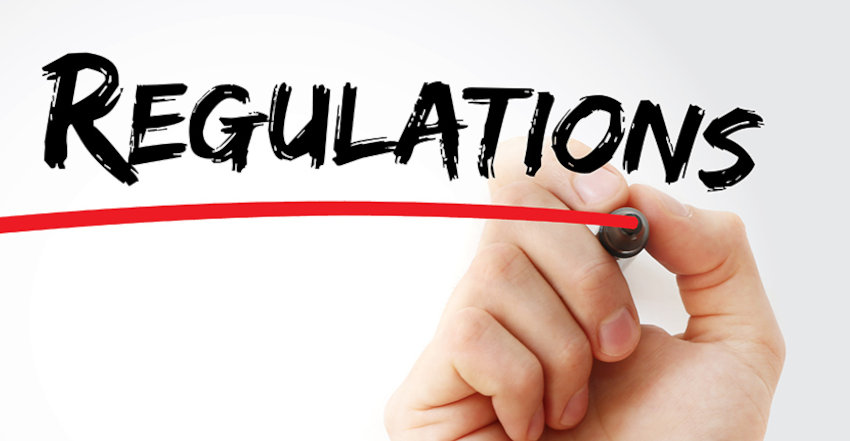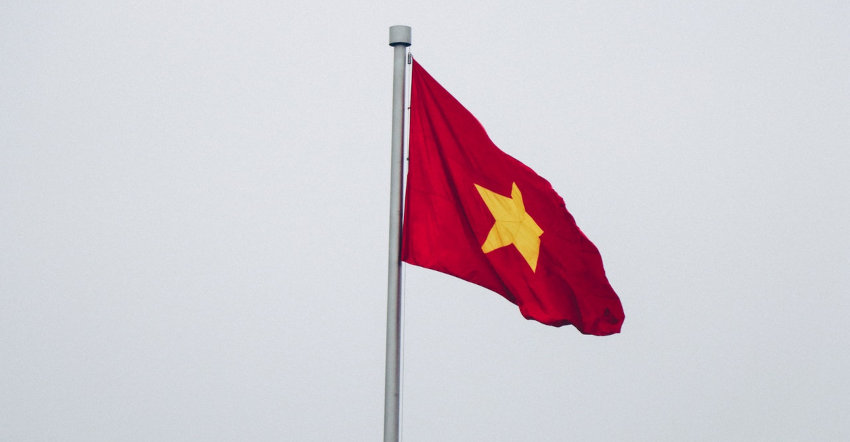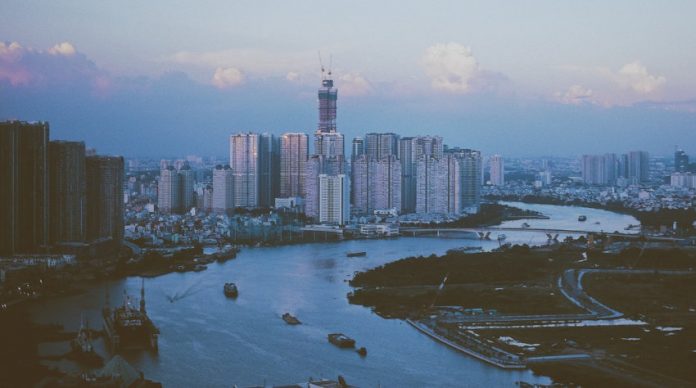The real estate market in Vietnam is a bustling market, with lots of ups and downs over the years. Especially during COVID, Vietnam was more resilient than ever to show the world that it can fully withstand difficulty. And the market speaks for itself: The real estate market is coming back stronger in 2022 with lots of opportunities for both local and foreign investors.
But as a foreigner who is interested in land in Vietnam, you may find it hard to understand because things work differently compared to what your country is doing. Such includes the regulation, the paperwork, the opportunity, and different methods that you can pull off, as a foreigner, to invest in land in a country lying in the center of Southeast Asia.
And if you’re a foreigner who is keen on investing in real estate in Vietnam, or buying lands specifically, this article is for you. I will walk you through some of the things that you need to know firsthand to participate in the market.
(Disclaimer: The article aims to help you understand better how the market works in Vietnam. It doesn’t intend to encourage you to invest or believe in any organization to invest your money. All the research belongs to you and it’s up to you to decide where your money should land).
I. Regulations

Like any other country in Southeast Asia, no foreigners can own lands in Vietnam. All lands belong to the state. The state is responsible for the administration of the land. Rights are also limited for foreign buyers.
The second thing about buying land or property in Vietnam, as a foreigner, is to know the quota allowed for foreign buyers by the government. In Vietnam, foreigners cannot buy more than 30% of the project; Solely for District Restriction Quota, foreign buyers or investors are now allowed to buy more than 10% of the project. These things could get complicated later on. Therefore, you should consult with a real estate agent or any professionals you know to get the best picture of what’s coming.
Another thing worth mentioning is the LUR (Land Use Right). It’s simply known as a book (Pink Book as the color of the cover) to claim your right of land ownership, issued by the Ministry of Natural Resources and Environment. LUR gives you the right to lease lands in Vietnam.
The maximum time a foreigner can lease lands in Vietnam is 50 years. In some cases, it could be up to 70 years but it’s a rare situation. Unlike foreigners, locals have infinite use of the Land Use Right.
There are 2 types of arrangements that you can pursue depending on your financial condition. If you don’t have enough money to pay at once, an annual arrangement is recommended. However, some limitations may affect the purposes of the buyers in the long run. If the investor chooses the annual arrangement option, they can only use the land for the stated purposes and transfer assets as part of the land.
The second type is the one-time payment, usually known as a one-off arrangement, meaning that you pay the entire lease in one payment. Investors can transfer, mortgage, sublease, or contribute capital according to the rights given in the one-off arrangement.
Since the rights are limited on the foreigners’ side, a foreign investor should always carefully follow the terms stated in the LURC (Land Use Right Certificate). If one fails to follow the terms, the government will take back the land even if you haven’t finished the 50-year lease.
Another scenario that may happen is the sudden change in the city planning, meaning that the government will take back your land on the occasion where they have to use it for a particular purpose. Compensation will be given to the leaser depending on the number of years of the lease and the mutual agreement between both sides.
II. The methods to lease lands in Vietnam as a foreigner

Method one: “Allocation” is the keyword of the first method. The state allocates a LURC via an administrative decision. As the user of the land, you are required to pay the land use fees to the government. Such an option is available to the investors who invest in infrastructures projects in cemeteries and residential housing projects.
Method two: The government leases the land to a user and the user is required to pay the rent. The payment can either be done annually or by a one-off arrangement.
Method three: If you prefer not to go through the government for this piece of work, you can lease or sublease land from a landlord (usually a commercial enterprise) that has already acquired the Land Use Right using either the first method or the second method. However, lands that you lease must be in a processing zone, high-tech zone, economic zone, or industrial zone.
Method three is usually the easiest way for foreign investors to lease land in Vietnam because all the paperwork has been done by the current user.
Method four: You can lease lands by following one of the options below:
- The agreement attached to the land related to the transfer of assets
- The transfer of the Land Use Right
- Capital contribution (through the land lease agreement with the existing user): The current user of the land will contribute capital in the form of the Land Use Right.
Keep in mind that you cannot lease land as an individual foreigner. You must be an entity that is run by foreign investment to lease or sublease land in Vietnam.
Therefore, if you are a foreigner that has a spare in the safe and you want to invest in lands in Vietnam, you can go through a real estate agent who could help you form an entity on the paperwork on your behalf. This type of service could be a bit tricky as you need to find an agent that you can truly trust. Such is hard to carry out when you decide to invest in a country you barely have any connection with.
You will find this interview from two real estate investors who purchased lands in Vietnam and are discussing about the opportunities for foreigners to consider this emerging market.
The questions covered in this video are about :
- The common setup foreigners are using to acquire lands in Asia.
- How to do your due-diligence and valuation.
- 3 examples to illustrate the price and potential of lands in Vietnam.
To learn more about the due diligence, buying process and mistakes to avoid while looking to invest in lands in Vietnam, this complete report will explain everything you need to know.
One good headstart that you can prepare yourself in the beginning stage is to make as much connection with the people involved in this type of investment. It can be a local Vietnamese who you talk to a lot for advice or a foreigner who used to or is living in Vietnam and has experience in buying lands in Vietnam. From there, you can always gain much more important information that the usual Google cannot offer.
III. Setting up an LLC (Limited Liability Company) and Using a nominee to invest in land in Vietnam
The 2 types of setup have pros and cons. You should know what your goal is before choosing one to start investing in land in Vietnam.
-
Setting up an LLC
The first method is to set up an LLC in Vietnam. Since only foreign companies and not individual foreigners are allowed to invest, you will have to walk through the process of setting up a company yourself before throwing money into your upcoming investment.
The process could take months to finish as there is a couple of paperwork that you need to possess. Such includes:
- The business registration
- The business plan approval
- The charter capital
This setup may only be ideal for those who aim to invest long-term. Because once you choose to invest in land as an LLC, there is a lot of paperwork and taxes that you have to pay after acquiring the land.
-
Using a nominee
The second method, and probably the most common option that most people prefer is using a nominee.
The concept of using a nominee is that you establish a mutual agreement between 2 parties: One party is a local Vietnamese agency, entity, or even a local person who will act as a shareholder, director, secretary, or a company holder for a company owned by the other party, which is you, a foreign individual or a legal entity that is located in overseas.
Using a nominee is a much simpler way if you want to invest in land in the short-term, or if you plan to invest from one land to another continuously. You don’t need to spend too much time dealing with the paperwork and you’ll be given the right like a local when investing land.
The reasons that make using a nominee a common solution:
- The procedure is a lot more simplified because it’s made for Vietnamese. As for the procedure applied for foreign investors, the paperwork is a lot more complicated.
- Financial capacity is required as proof to contribute capital when you invest as a foreign investor, while this piece of paperwork is not needed when investing as a local Vietnamese. Therefore, a nominee became common among foreign investors.
- When using a nominee, you’re granted the rights as a local investor while investing in a foreign LLC may confine the process.
- The nominee agreement runs your business by recruiting local staff, which will reduce a lot of the cost and help you gain good profit while investing in Vietnam.
IV. The potential of lands in Vietnam

Speaking of the opportunities that investors may gain from investing in lands in Vietnam, there could be tons of them. Of course, the market isn’t as great as big countries like China or the US because they have had a long history of being one of the hugest places for manufacturers. However, since Vietnam is aware of its potential and wants to expand further not only in Southeast Asia but in the world, it starts to open up more legal rights and benefits for foreign investors, and even the big names like Samsung that play a crucial role in sustaining the economy of Vietnam.
In 2015, Vietnam issued a document stating that foreigners were then allowed to hold, share, or buy property in Vietnam. As a country that has an impressive background in demographics, geographical location, cheap cost of labor, and land availability, the country has since then attracted more manufacturers to come to Vietnam. This movement doesn’t seem to stop as according to recent news, despite the damage COVID caused to the country since May 2021, Vietnam still received decent foreign investment. The situation has gotten a lot better now. The country is predicted to receive even bigger numbers to become one of the strongest countries in Southeast Asia. This also comes with the fact that the more foreign investments enter the country, the more valuable lands are.
At the moment, lands are still really cheap depending on the location. We’re not talking about lands in big cities like Ho Chi Minh, Hanoi, or Danang because those are the 3 biggest cities in the countries that play a very important role in regulating the economy. However, hundreds of other cities are growing fast. Lands in areas like Bao Loc, Long An, or Vung Tau can create a 15 – 20% profit annually. The profit can go up depending on the location. Service land and vacation lands come with an insanely high price but they go with a profitable return. It’s up to you to pick the right timing to buy, hold, and sell or lease to those who are interested.
An auction in Ho Chi Minh took place in December 2021 for the plots at Thu Thiem. There were many big names in different industries that took part in the auction (Both local corporations and foreign corporations). The auction was such an intense experience because everyone was willing to pay 5, 6, and even 8 times the initial price for those plots. And the total bid came up to almost 40,000 Billion VND (~ 2.000.000.000 USD), which is an insane number. The auction was one of the first signs that show the comeback of the real estate market in Vietnam.
V. Ways to evaluate the value of land in Vietnam

There are different ways you can use to measure the value. However, I learned that direct comparison is one of the best ways to do it.
The first criteria when measuring the land value is to look into the size, the legal status, the location, and the infrastructure in that area specifically.
The location is always the most important factor that decides a huge part of the price. For example, if you plan to buy the land to open a business or sell it to someone who wants to open a business, it must be a place where traffic appears frequently. A place where everyone can see is a place that attracts the most profit in the long run.
The infrastructure affects multiple aspects of the land. It relates to city planning which requires frequent changes made by the government. If such volatility happens so frequently, it may be a bad deal that downgrades the quality of the land.
The convertibility of land is also another huge factor that decides the land price. The price can vary differently between land that serves only one particular goal (For example: Agriculture, vacation, housing, …) and land that can easily be converted (For example: agricultural land that can convert to constructible land).
VI. The last word
I hope the information above will help you gain a better understanding of the market in Vietnam. It hasn’t yet been one of the strongest countries in the world, like the US or China, but it surely is a place you should consider looking into, as an option to diversify your portfolio.
The goal of Vietnam is to become a prominent factor in the global market. And land in specific, or the real estate market in general, is certainly one of the strongest industries that will help Vietnam achieve its goal.




































